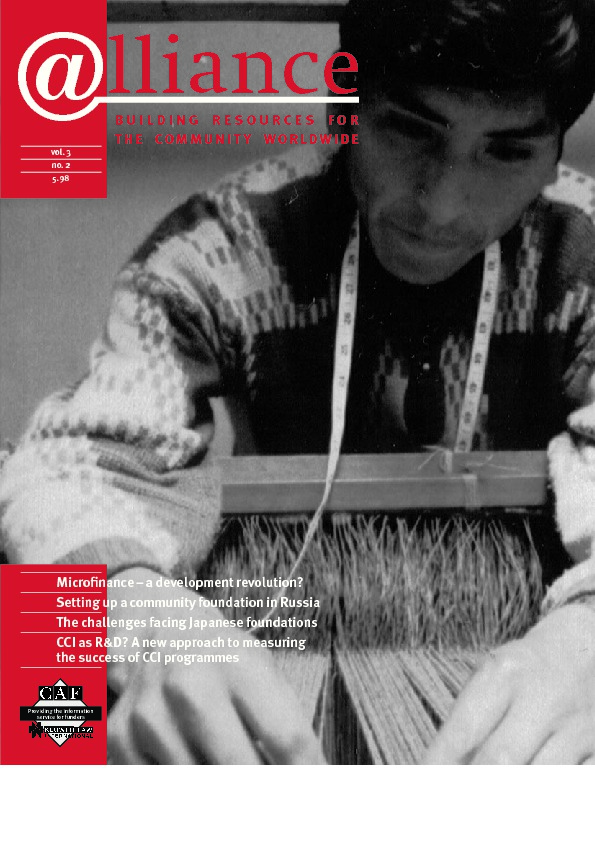In the USA where community foundations began – the first was established in 1914 – the core idea was twofold: to create permanent local funds for grant-making and to offer services to donors, giving them the benefit of their own charitable trust but without the administrative burdens.
The community foundation model is effective because of its structure and underlying principles:
- It brings donors together, pooling their funds to create income for local grant-making, giving them as much flexibility as they want in choosing how and where their money is directed.
- It encourages philanthropy in its widest sense – not just generous giving in response to emergencies or appeals, but planned, strategic, constructive giving with a view to assisting the long-term needs of an area.
- Even relatively small-scale funding can prove effective locally. Community foundations aim to be user-friendly grant-makers, advising and helping applicants, guiding them to other funders, linking them to additional services and support. Their grants can support very small groups doing vital local work as well as contributing to bigger programmes of funding.
- Community foundations can provide a focus for many new initiatives – bringing local funders together, attracting new sources of support from outside the area, drawing in all sectors to create practical partnerships
- Their boards and advisory committees have considerable knowledge of community needs and opportunities.
These factors explain why the model has captured the imagination of people in key roles in central and eastern Europe too. There is a strong need to encourage diverse involvement in public life and to assist in building lively, healthy communities and resourcing vital services. Community foundations are seen as vehicles to achieve this; if well structured, they do so with local accountability and transparency, which is essential to the new social economies.
Developing in eastern and central Europe
It has not been easy to develop community foundations in the UK. Only a handful feel truly secure and sustainable as yet – but these are a source of experience and inspiration to others. They are seeking to change attitudes to giving; from the start they must inspire confidence in donors through the people involved and the way they operate.
How much harder it must feel in central and eastern Europe, therefore, with new networks and models throughout the non-profit sector, new relationships and structures being built, legal and fiscal disincentives for charitable giving in some countries, bars and blocks to investment. Elsewhere in this issue, Olga Alexeeva vividly describes the obstacles faced in Russia. Despite this some strong and visionary models are developing.
A two-day meeting in January 1998 organized in Krakow, Poland, by Freedom House attracted about 80 people from 14 countries in the region, representing a mixture of local initiatives and organizations as well as support bodies. The meeting looked at the issues involved in exploring feasibility, starting and operating community foundations, and the support systems which they need. While some of the facilitation came from outside the region, a good proportion was drawn from local experience and expertise (notably the Healthy City Foundation in Banska Bystrica, Slovakia). Extensive consultation and development exercises in Poland and Slovakia were described; interested observers were drawn in from countries new to the model (Romania, Macedonia, Croatia); and potential donors expressed their interest in these developments. The power of community foundations for creativity and change fired everyone’s imagination.
Gaynor Humphreys is Director of ACTAF, the Association of Community Trusts and Foundations, the organization created by UK community foundations in 1991 to support and promote community foundations throughout the country
For information about ACTAF and individual community foundations in the UK, contact ACTAF at 4 Bloomsbury Square, London WC1A 2RL.
Tel +44 171 831 0033
Fax +44 171 831 3881
E-mail actaf@patrol.i-way.co.uk


Comments (0)